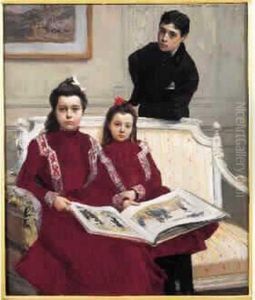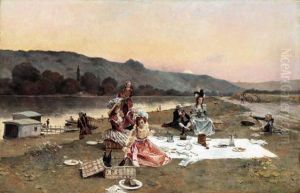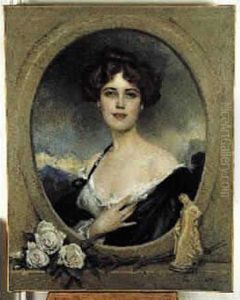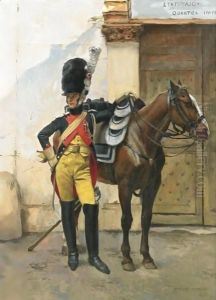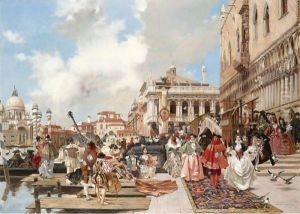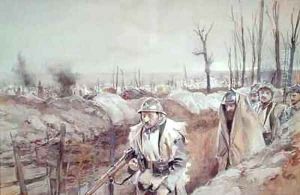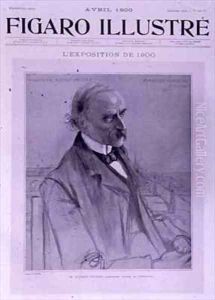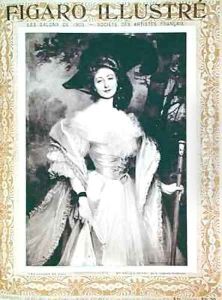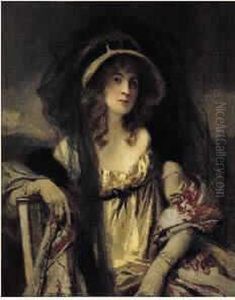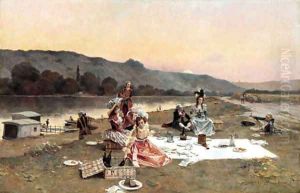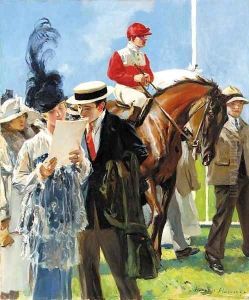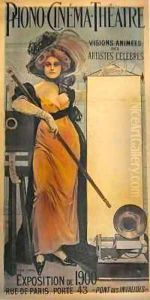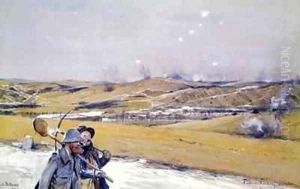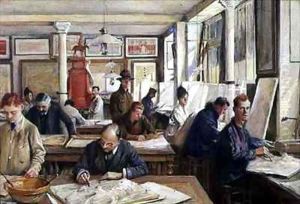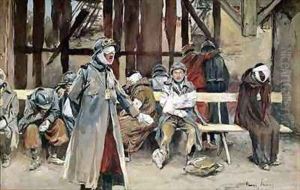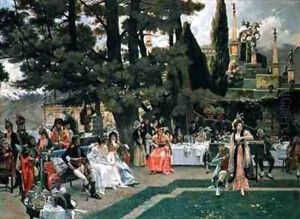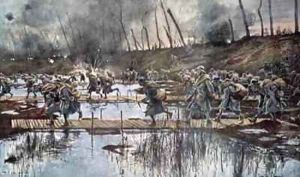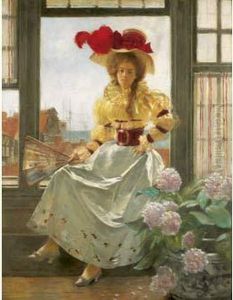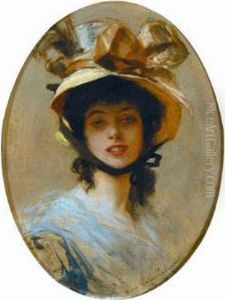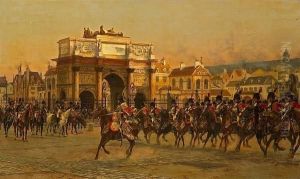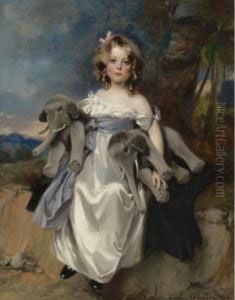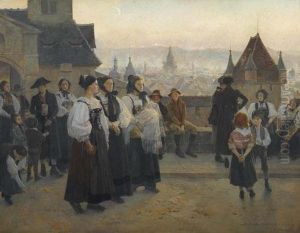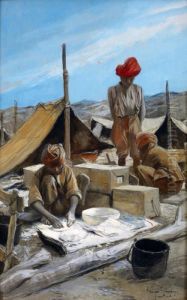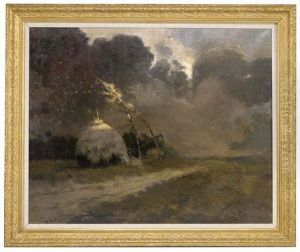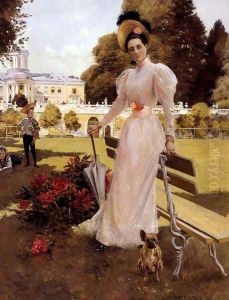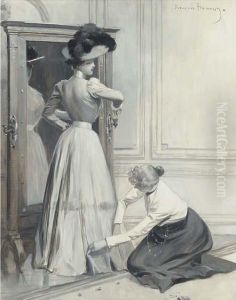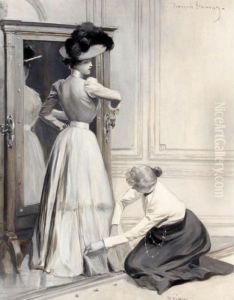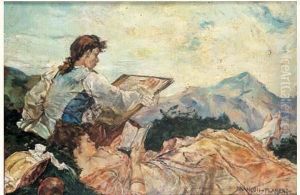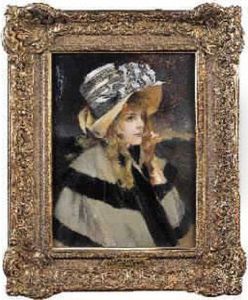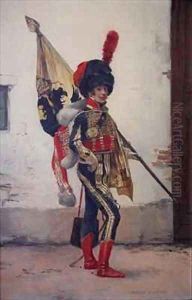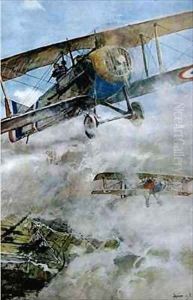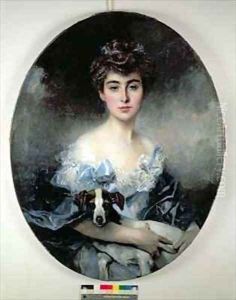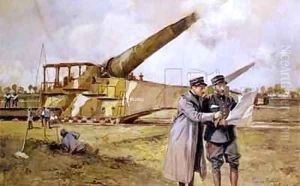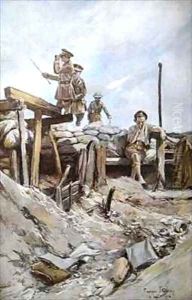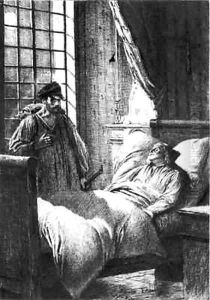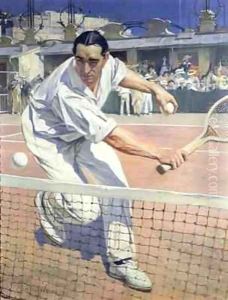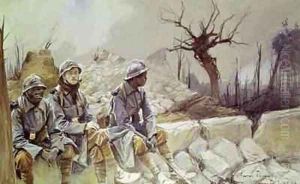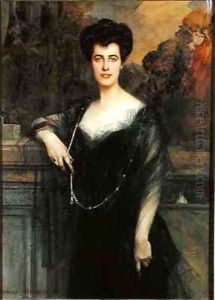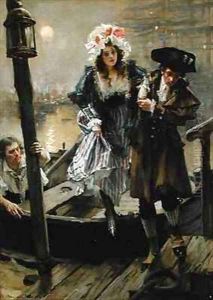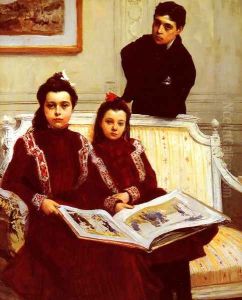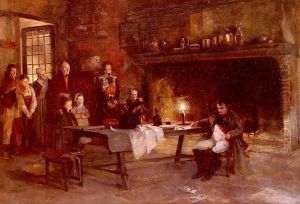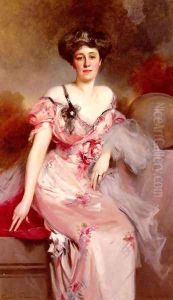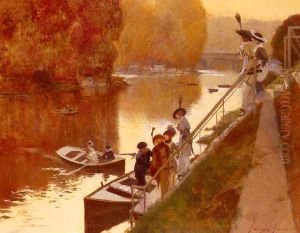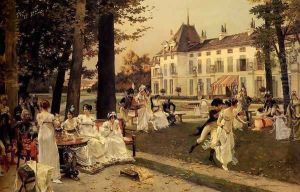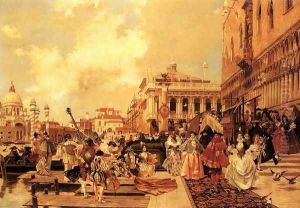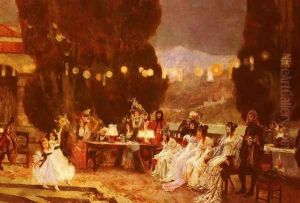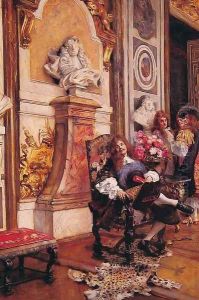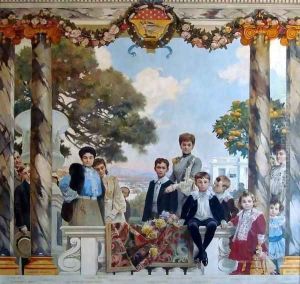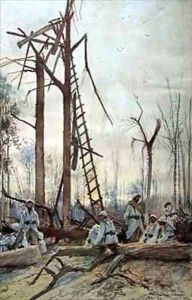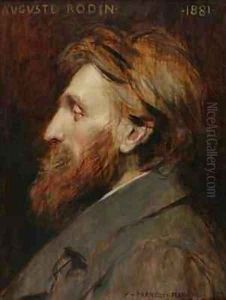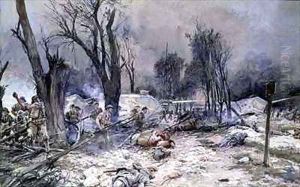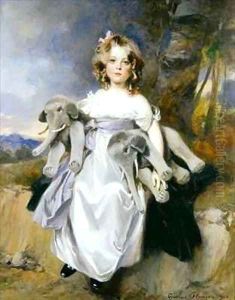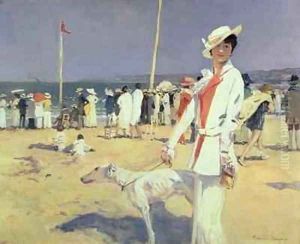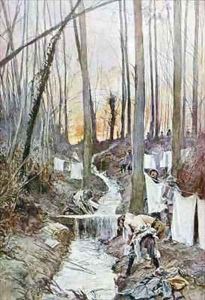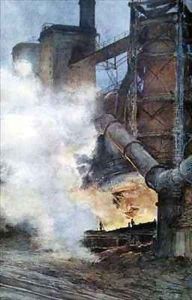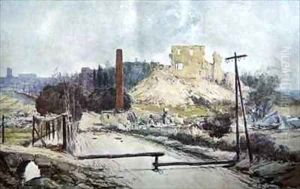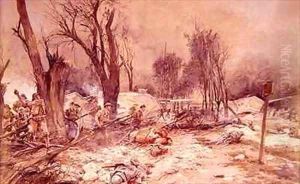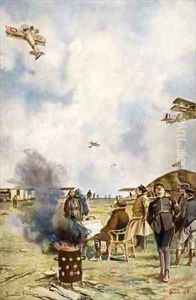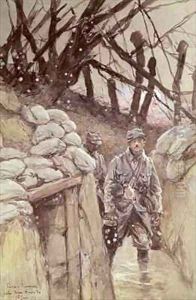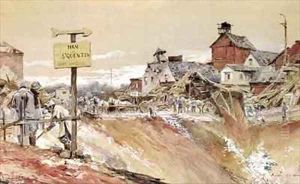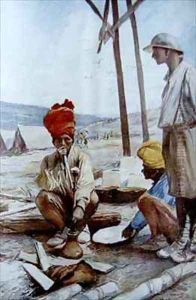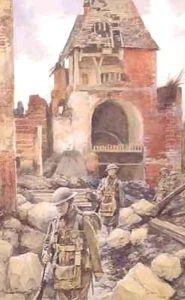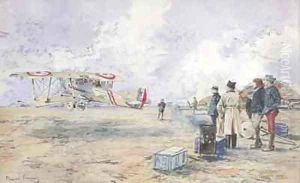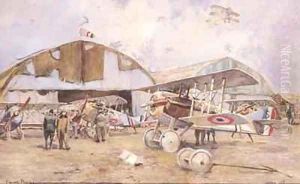Francois Flameng Paintings
François Flameng was a very successful French painter during the last quarter of the 19th century and the early years of the 20th century. His work is associated with the Academic art movement, which was characterized by its adherence to standards set by the French Academies. Flameng was born in Paris on December 3, 1856, into an artistic family; his father was a well-known engraver.
François Flameng was initially trained by his father and later attended the École des Beaux-Arts, where he was a student of Alexandre Cabanel, a prominent Academic painter. Flameng won the prestigious Prix de Rome in 1873, which provided him the opportunity to study in Rome at the French Academy. This experience had a significant impact on his artistic development, allowing him to study the works of the Italian Renaissance, which influenced his style and subject matter.
Upon his return to France, Flameng quickly established himself as a popular artist, known for his historical and genre paintings, as well as portraits. His works were appreciated for their elegance, detail, and vibrant color palette. He painted a variety of subjects, including scenes from French history, society life of his time, and classical mythology.
Flameng also became a sought-after portraitist among the French elite and produced a number of significant public commissions. He was a regular exhibitor at the Paris Salon, where he received numerous medals and commendations. In addition to painting, he taught at the École des Beaux-Arts, influencing a new generation of artists.
During World War I, Flameng was deeply affected by the conflict and was commissioned by the French government to document the war. He produced a series of works that depicted the harsh realities of the battlefield, a departure from his earlier, more romanticized historical paintings.
François Flameng's work fell out of favor as the 20th century progressed, with the rise of Modernism and the avant-garde rejecting the traditionalism of Academic art. However, his contributions to French art during his lifetime were significant, and his paintings can be found in many museums and collections around the world. Flameng passed away on February 3, 1923, in Paris, leaving behind a rich legacy as a representative of the Academic tradition in French art.

